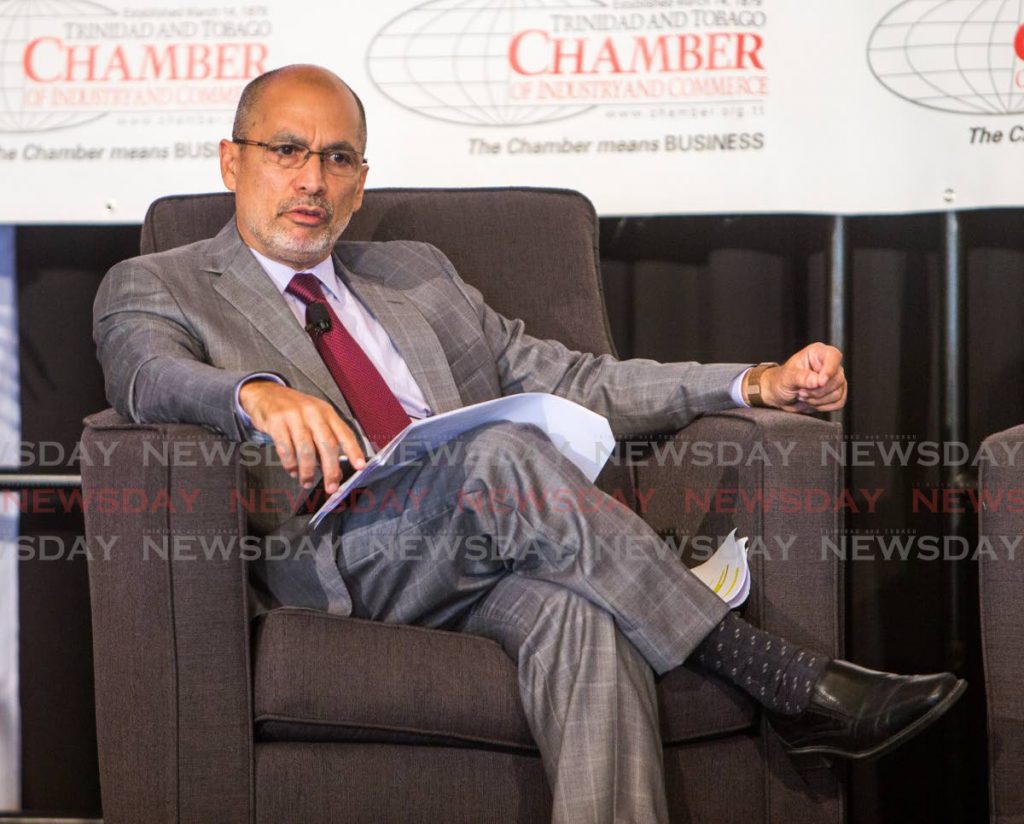WORK FROM HOME

Unease is growing over the possible economic ramifications of a protracted coronavirus outbreak in this country, including a decimation of the healthy workforce. As such, businessmen and members of the Employers Consultative Association (ECA) have been holding discussions on ways and means of mitigating the effects of the virus.
One such suggestion, to have a work-from-home protocol for staff facing quarantine because of the coronavirus is being made by the ECA and TT Chamber of Industry and Commerce. Both have begun meeting to collect ideas on how workplaces can cope with the threat of the disease.
Chamber CEO Gabriel Faria told Newsday his group has held talks with the ministries of Health and Trade, including discussing the virus’ potential impact on the commercial sector. These talks came after Prime Minister Dr Rowley last week warned of potentially far-reaching economic implications for this country from coronavirus.
PAHO’S INPUT
“We will meet PAHO (Pan American Health Organization) for a more formal dissemination to our members as to how to deal with it,” Faria said. “We want to meet this week to put some procedures and systems in place which we can disseminate to our membership for them to have some sort of framework for treating with it.”
Faria said a basic principle is that if someone is thought to have the virus they should self-quarantine. “We just need to make sure we have some sort of mechanism to be able to identify the issue and refer them to the necessary authorities. We are talking to the Ministry of Health on that, so every private-sector organisation knows what they have to do in the event.”
Faria said time off in self-quarantine for someone who is not actually ill also needs to be discussed from an industrial relations perspective. “Can we have a work-from-home type of model? So we are looking for new thoughts and ideas for discussion, and we are going to be working with what the Ministry of Health and PAHO are saying, so as to create an operating model which the private sector can refer to deal with it.”
Newsday asked if software exists to co-ordinate everyone in a company working from home under any prolonged lock down. Faria replied, “Not yet. We are not at that stage of thinking. He believes this situation is unprecedented.
“I don’t think the world has ever had a situation as pronounced as this. What has happened here will allow us to rethink our perception of ‘normal.’ I think you’ll find workplaces in China and TT looking at a new way to mobilise their workforce which may allow for remote work, work-from-home options.”
He said the business community and labour organisations must come together to shape a new model. “Working from home is okay once we can measure the output. We are not talking about someone who has the virus and is sick, but is in self-quarantine
THE UK MODEL
“We are in discussions and we hope to have something more concrete by the end of the week or early next week, where we’ll be able to at least put some framework where people can say, ‘Yes, this is an option.’
“So this situation will force the world, not just TT, to think about how they can run an organisation leveraging remote work and work from home, yet still measuring productivity.” He said a country is better off if it has good structures, even as he hailed the Ministry of Health and PAHO for engaging his group. All this will help reduce any sense of panic among people, Faria said. “Panic is not going to solve anything,” he said.
TT’s preparations for the coronavirus so far appears limited to mainly medical precautions. These seek firstly to prevent its entry to TT by screening arriving passengers at airports and seaports, secondly to try to stem any local spread by encouraging hand washing and good nasal hygiene, and thirdly by providing beds in quarantine centres and encouraging self-isolation of high-risk arrivals.
Yet little has been said as to how various agencies will actually keep the country running in the event of a mass outbreak. The private sector has begun discussing how staff may be able to work from home, but there is no plan as to how public functions such as the public sector, transportation, security and education will be continued.
In contrast to the UK’s Coronavirus Action Plan was published on Tuesday, showing that country’s multi-pronged approach to dealing with the virus.
This UK plan, as published in UK newspapers, hints at school closures, a ban on mass gatherings, and restrictions on the use of public transport. Alongside a public awareness campaign, the plan says new public health laws empower the police and medical officials to make people stay in quarantine.
It also talks of troops supporting the emergency services and a depleted police service maintaining their critical functions by limiting their focus to the most serious crimes and maintaining public order. The Department of Health and Social Care’s plan also urged businesses to build their own resilience for an outbreak.
Launched by Prime Minister Boris Johnson on Monday, the plan predicts that one-fifth of workers could be off work during the peak period of an outbreak.
Up to press time, a Canadian national was warded in quarantine at a public health institution while health officials are awaiting results of tests after he showed flu-like symptoms. Two other people were tested, one in Tobago and one in San Fernando, but the test results came back negative.


Comments
"WORK FROM HOME"